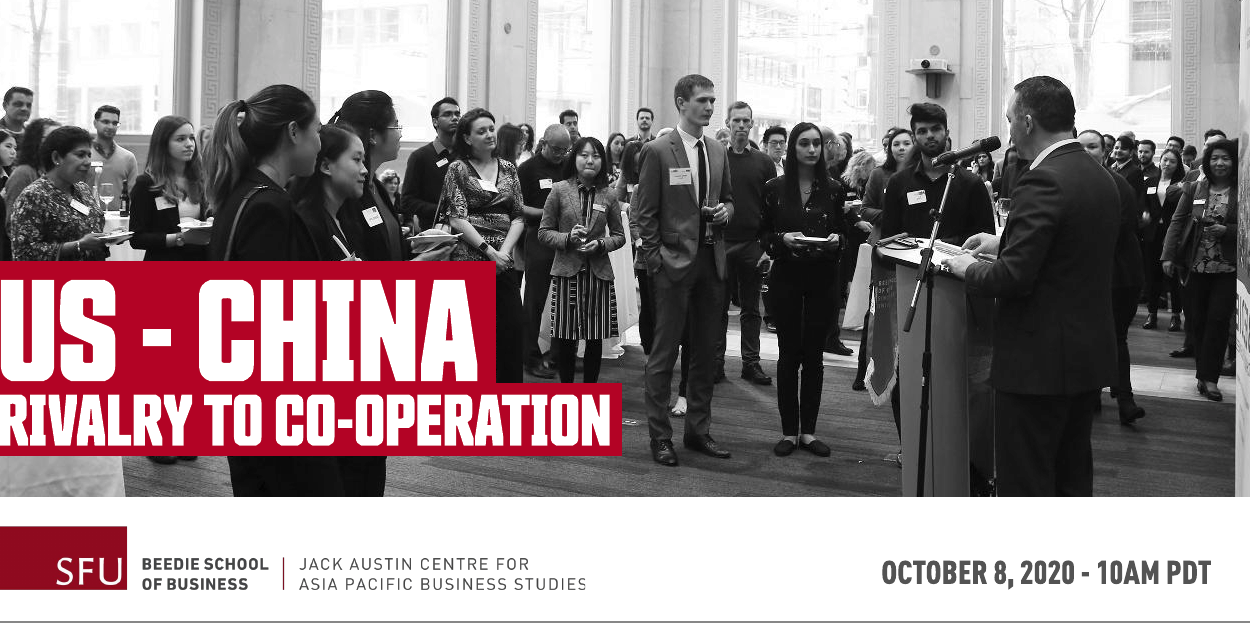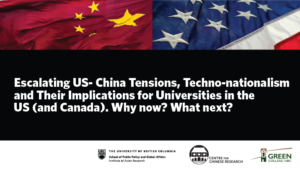Virtual webinar hosted by SFU’s Jack Austin Centre for Asia Pacific Business Studies in partnership with the Chinese Globalization Association (CGA).
About This Event
The Chinese Globalization Association and SFU’s Jack Austin Center for Asia Pacific Business Studies are pleased to present a keynote speech by a distinguished Professor of Management and Global Business, Farok J. Contractor. In this keynote speech, Farok J. Contractor will explore the potential for economic collaboration between China and the United States.
The talk will examine the future of the US-China relationship and policy dilemmas between these two global powers.
The webinar will also feature Eric Werker, William Saywell Professor at the Beedie School of Business at Simon Fraser University, as the discussant.
The webinar will be co-moderated by Jing Li, the Co-Director of the Jack Austin Centre for Asia Pacific Business Studies of SFU’s Beedie School of Business and by John R. McIntyre, founding Director of the Georgia Tech Center for International Business Education and Research (CIBER).
Presentation Abstract
Despite enormous economic complementarities and synergies between the US and China, the current relationship is akin to a quarrelling couple that still needs each other because of the 639 billion in bilateral trade in goods and services, and the “Direct Investment Position” of the two countries combined exceeding $ 130 billion, in 2019.
Putting aside nationalism and ambitions – whether political or corporate – there is no structural or fundamental reason why the two economies should not cooperate on a broad range of issues and sectors, ranging from healthcare to green energy to vehicles, for mutual benefit.
However, because of psychosomatic anti-globalization reactions in the US after 2016, and in China an exaggerated sense of nationalism and nursing 178-year-old grievances that bear little relevance to the present day, the two largest economies are now in an artificial state of tension.
This presentation will focus on the potential future relationship and policy dilemmas. Here are just two examples: China’s portraying itself as the new champion of globalization which then also requires its grudging acceptance of universally accepted rules. For the US, one policy dilemma is how to maintain an open-innovation environment while dealing with the real and imagined ghosts of intellectual asset theft. But there remain the vast majority of areas, sectors and subjects on which the two biggest economies can cooperate, for mutual benefit.





